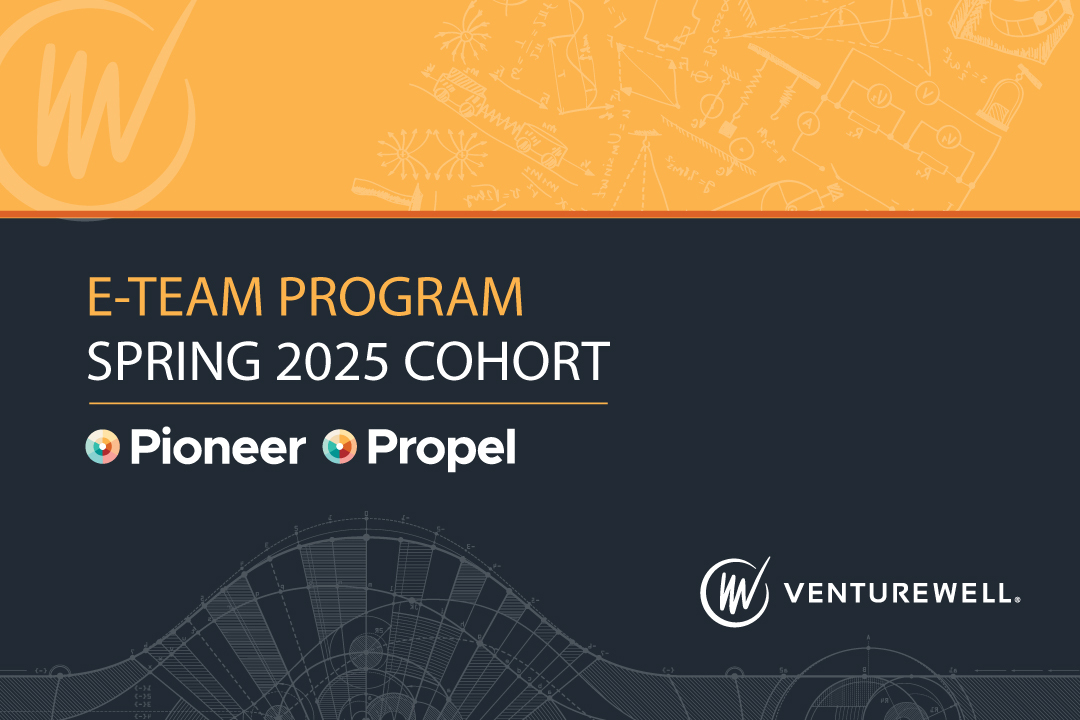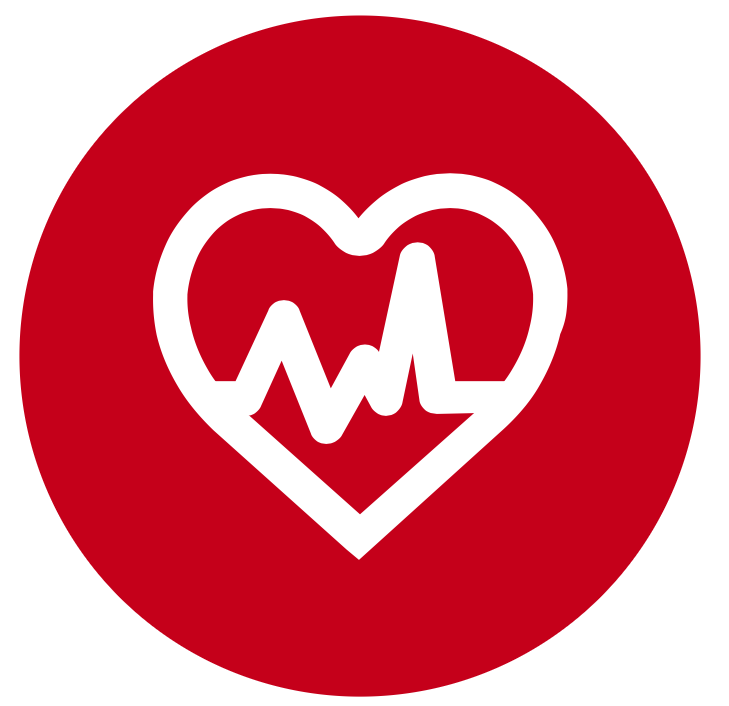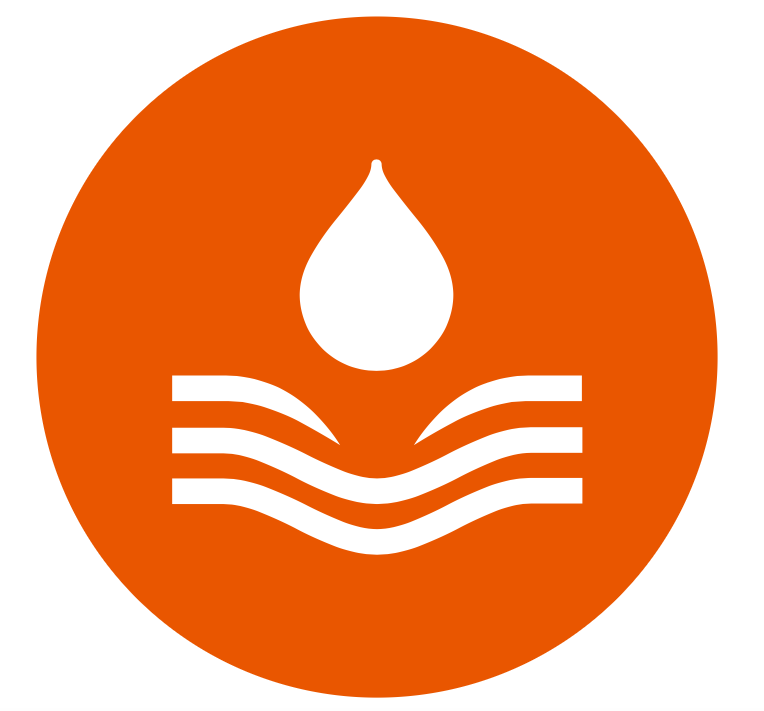
Twenty-three student ventures have been selected for the spring 2025 cohort of the E-Team Program. The teams were selected from a strong pool of applicants, standing out for their creativity, potential for positive impact, and dedication to solving some of the most pressing challenges in healthcare, the environment, information technology, and other fields through the development of innovative science- and technology-focused innovations.
Fifteen teams will kick off their entrepreneurship journey in Pioneer, the first stage of the E-Team Program, where they’ll receive $5,000 in grant funding and intensive entrepreneurship training to help identify the right market for their products. Eight teams will advance to Propel, receiving an additional $20,000 in funding and three months of expert-led training to fine-tune their business models and validate their business hypotheses.
“These early-stage innovators are poised to make a significant impact, and the E-Team Program will help them test and validate their concepts,” said VentureWell Program Officer Sarah Wharmby. “We’re proud to provide the support and guidance they need to turn their breakthrough ideas into scalable, real-world solutions.”
This cohort includes promising inventions that focus on a variety of areas, including improving air quality and drinking water. Puffin Air Purifiers, selected for Pioneer, is improving indoor air quality for those affected by pollution, wildfires, extreme temperatures, and poor ventilation, with an air purifier that allows customers to reduce harmful levels of CO2 and bioeffluents in their home. GelPure, a team advancing to Propel, is developing high-surface-area absorbent polymer gels designed to capture and retain harmful per- and polyfluoroalkyl substances (PFAS) from drinking water, providing public water utilities with a quicker and more efficient method for providing clean water.
Learn more about the latest cohort of Pioneer and Propel teams and the potential impact of their innovative solutions:

 Energy & Materials
Energy & Materials
H2ive | Stanford University
Principal Investigator: Stefan Reichelstein
Team Members: Suhani Mohan, Caraíosa O’Farrell
H2ive is relieving a key bottleneck for green hydrogen adoption, offering a safer, more cost-effective dual-alloy metal hydrogen storage for industrial feedstock and long-duration energy storage, enabling reliable, decentralized clean energy solutions.
Harwind | Case Western Reserve University
Principal Investigator: Jonathan Steirer
Team Members: Andrej Antunovikj, Xiaotong Li
Harwind is bridging the gap between costly, large, and unreliable small turbines with a high-efficiency, durable dual-rotor design, delivering reliable off-grid power to remote and austere environments such as lighthouses, research stations, and rural communities.
Rise Reforming | University of Chicago
Principal Investigator: Mark Stoykovich
Team Members: Jona van Oord, Lucas Zubillaga
Rise Reforming is developing a process to convert unrecyclable plastic waste into carbon-negative chemicals, offering a sustainable alternative to fossil-derived options. This modular solution addresses low plastic recycling rates and reduces the chemical industry’s reliance on fossil feedstocks.
 Environment
Environment
Goldilocks Smart Solutions | Morehouse College, University of Connecticut
Principal Investigator: James Young
Team Members: Thomas Bittings, Nick Nguyen
Goldilocks Smart Solutions is creating a sustainable, easy-to-install smart shower system made from recycled plastics, offering water purification, usage tracking, voice controls, and app-based customization, for a safer, more efficient shower experience.
Puffin Air Purifiers | University of Michigan-Ann Arbor
Principal Investigator: Todd Allen
Team Members: Rebecca Lentz, Rachel Silcox
Puffin Air Purifiers is developing an air purifier that allows customers to reduce bioeffluents and harmful levels of CO2 in residential settings for those affected by pollution, wildfires, extreme temperatures, poor ventilation, and other safety concerns.
 Healthcare/Medical
Healthcare/Medical
Axonara Biosciences | University of California-San Diego
Principal Investigator: Jacques Chirazi
Team Members: Alejandro Alcocer Corona, Edward Fisher
Axonara Biosciences is advancing point-of-care genetic screening to improve treatment decisions for neurological conditions like irregularly shaped blood vessels in the brain, enhancing outcomes and longevity for patients worldwide.
CareAlert: Timely Alerts for Better Healthcare | Lehigh University
Principal Investigator: Khanjan Mehta
Team Members: Kavya Famolari, Regina Ruiz, Meghan Young
Care Alert is enhancing continuity of care for vulnerable populations like pregnant women in low-resource settings, such as Sierra Leone, with an innovative, low-cost wearable device that alerts patients to upcoming appointments with healthcare providers.
Coord Health | Harvard University
Principal Investigator: Elise Bates
Team Members: Leora Sutton, Christina Vosbikian
Coord Health is reducing the annual cost of and addressing critical gaps in U.S. women’s healthcare by providing virtual lifestyle medicine support that leverages multi-specialty teams and artificial intelligence (AI)–based patient engagement for evidence-based counseling and care coaching to address preventable drivers of poor health.
DermaVision Technologies | University of California-Irvine
Principal Investigator: Elliot Botvinick
Team Members: Paul Morenkov, Jessica Racela
DermaVision Technologies is developing a phone-attachable spectral imaging device that uses quantitative bruise characterization and aging to assess injuries resulting from domestic violence incidents more objectively across all skin tones, providing law enforcement and medical professionals with a uniquely reliable and equitable diagnostic method.
Malleous | University of Pittsburgh-Pittsburgh Campus
Principal Investigator: Harvey Borovetz
Team Members: Amna Imran, Benjamin Leslie
Malleous is developing a novel surgical instrument that combines suction and retraction tools, decreasing the amount of time patients spend in surgery, which reduces anesthesia duration, blood loss, and the potential risk of surgical site infection, all while maintaining the retractor’s malleable and bendable properties.
Métopi | University of Virginia-Main Campus
Principal Investigator: Blair Okita
Team Members: Ben Joseph, Miles Lanham
Métopi is creating the first wearable, multi-pack prescribable rescue inhaler, which provides instant access to rescue medication, helping those who could experience potentially life-threatening flare-ups if their traditional rescue inhaler is not within reach.
Veina Vascular | Johns Hopkins University
Principal Investigator: Soumyadipta Acharya
Team Members: Antoine Noreau, Sneha Raj
Veina is re-engineering the blood-draw process in the emergency department with a novel system that minimizes hemolysis—when red blood cells break apart during sample collection—improving accuracy, efficiency, and patient outcomes.
Wound CAARE | North Carolina State University at Raleigh
Principal Investigator: David Zaharoff
Team Members: Angel Koshy, Alexander Martjunchin, Carson Palmer
Wound CAARE is developing a technology that employs thermochromic materials so that wound dressings change color in response to leaks, providing a more reliable visual indicator of these leaks to patients recovering at home and their caregivers and reducing the need for costly home healthcare visits.
 Information Technology/Communication
Information Technology/Communication
Elder Joy | New Jersey Institute of Technology
Principal Investigator: Alisha Pradhan
Team Members: Lei Hao, Weiming He
Elder Joy AI combines technology education with generative AI to advance digital literacy and scam prevention for seniors, enhancing their learning experiences along with the scalability and effectiveness of their human-coach-led curriculum and training.
Gen Med Labs LLC | Jackson State University
Principal Investigator: Latane Brackett
Team Members: Brandon Newton, Earline Rawls
Gen Med Labs LLC is developing a technology that combines motion capture, holographic avatars, and 360-degree environmental integration to address the need for immersive, real-time remote collaboration in fields like engineering, education, healthcare, and virtual events, surpassing existing AR/VR solutions by providing a more spatially accurate and personal experience.

 Environment
Environment
Ecoplasticity | California Polytechnic State University-San Luis Obispo
Principal Investigator: Thomas Katona
Team Members: Mayela Fernandez Cantu, Michelle Cullen
Plastic containers and packaging account for approximately 14.5 million tons of municipal solid waste in the United States. Ecoplasticity developed a 100% compostable biobased film made from sargassum, an invasive species of seaweed, that can be used as an alternative to plastic-lined food packaging to mitigate environmental pollution and protect human health.
 Healthcare/Medical
Healthcare/Medical
AutoAspira | Johns Hopkins University
Principal Investigator: Elizabeth Logsdon
Team Members: Neha Chellu, Hassan Farah
Fine needle aspiration (FNA), a commonly used biopsy procedure in sub-Saharan Africa for diagnosing cancer, has a false-negative rate of up to 64.8%, resulting in missed diagnoses. AutoAspira is developing a handheld, automated FNA device that enhances sample cellularity, reducing non-diagnostic and false-negative cancer diagnoses and allowing patients to receive more accurate, cost-efficient diagnoses.
CIPER | Columbia University
Principal Investigator: Megan Heenan
Team Members: Leonhard Heinrich, Sean Kim, Kasey Zhou
Medication errors are a leading cause of patient harm and increased healthcare costs in hospital settings. CIPER (Constant Intravenous PushER) developed a portable, handheld device that automates manual IV push administration, ensuring precise medication delivery, reducing errors, improving efficiency among nursing staff, and enhancing patient safety.
Hidalga Technologies | University of Arkansas Main Campus
Principal Investigator: David Hinton
Team Members: Elizabeth Schmidt, Joshua Upshaw
Nearly 30% of radiation oncologists state that delays in the manual processing of prior authorizations have resulted in preventable emergency room visits, hospital stays, or long-term disability for their patients. Hidalga Technologies created an AI-powered platform that automates data transfer between clinics’ electronic medical records systems and payer portals to improve efficiency and patient care in specialty healthcare clinics, speeding up the prior authorization process to save lives and reduce operational costs.
OcuSound | Johns Hopkins University
Principal Investigator: Kunal Parikh
Team Members: Hyun Seo Lee, Elliott Leow, Valerie Wong
Glaucoma is a chronic eye disease affecting 80 million people worldwide, characterized by elevated intraocular pressure (IOP) that damages the optic nerve. OcuSound developed an accurate, noninvasive tonometer that utilizes sound waves and the acoustic properties of the eye for self-monitoring of IOP, increasing disease awareness and ensuring timely follow-up treatments to prevent glaucomatous vision loss.
SinuStim | Johns Hopkins University
Principal Investigator: Youseph Yazdi
Team Members: Oriol Cuxart, Sandhya Tiku
Chronic rhinosinusitis (CRS) is an inflammatory condition of the sinuses and nasal passages that affects 40 million adults in the U.S. SinuStim is a novel neurostimulation mouthguard that regulates hyperactive nasal nerves to instantly reduce nasal congestion and other symptoms experienced by patients with chronic sinus disease.
Technotonin Industries LLC |Boston University
Principal Investigator: Ian Mashiter
Team Members: Antonio Marzoratti, Ivan Zou
Disabled individuals look to powered wheelchairs for their freedom and independence; however, today’s heavy and bulky manual wheelchairs can make that a challenge. Technotonin Industries LLC has created the PAWE (Portable Affordable Wheelchair Enhancer), a portable, lightweight attachment that converts any standard manual wheelchair into an electric one in seconds, eliminating the need for a wheelchair pusher or wheelchair-accessible vehicle to transport the device itself.
 Sanitation/Water
Sanitation/Water
GelPure | University of Akron Main Campus
Principal Investigator: Sadhan Jana
Team Members: Moni Mahesh Ghosh, Brandon McReynolds
At least 45% of U.S. tap water samples contain one or more types of polyfluoroalkyl substances, or PFAS, according to a recent study by the U.S. Geological Survey. GelPure is developing regenerable gel adsorbent materials to remove PFAS from drinking water to meet U.S. Environmental Protection Agency standards more effectively than conventional methods.
Meet the Spring 2025 E-Team Program Partners and Sponsors
We are thankful to our partners that work with us to support these startups, including The Lemelson Foundation, a nonprofit dedicated to supporting the power of invention to improve lives; Qualcomm, a leading wireless tech innovator; Cooley LLP, an international law firm spurring the power of innovation through working with clients in the technology, life sciences, and high-growth industries; The Whitaker Foundation, which supported more than 400 grants to individuals wishing to pursue biomedical engineering; and, our host for the Spring 2025 cohort, Sears think[box] at Case Western Reserve University.
The E-Team Program Entrepreneurial Journey
Our Spring 2025 cohort teams will begin rigorous entrepreneurship training to advance their innovations. During Pioneer, teams will identify the ideal market for their invention, understand potential venture pathways, and define their unique value in the context of the industry landscape. Teams that move on to Propel will form and test their business model hypotheses. They’ll flesh out their business model canvas, verify it through customer interviews, and work on building their intellectual property portfolio. Participants in our spring workshops will convene at Case Western Reserve University in Cleveland, Ohio, April 24-25 (Pioneer) and May 8-9 (Propel).
About the E-Team Program
Through the E-Team Program, we have trained 590+ student teams and 1,700+ early-stage innovators. The teams have raised more than $580 million in follow-on funding and have launched over 250 ventures since taking part in our program.
Learn more about VentureWell’s E-Team Program, which supports student-led science- and engineering-based teams from across the nation in bringing their high-impact innovations out of the lab and into the market.